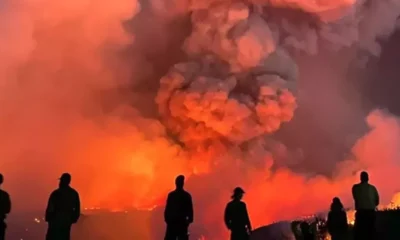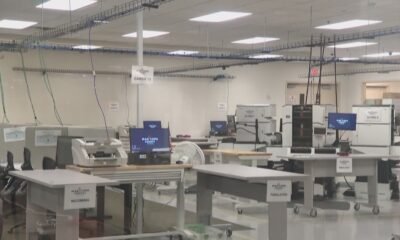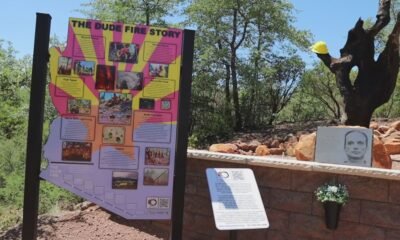Business
Pima Supervisors Tackling Property Taxes While Allocating $100,000 for Pioneer Fire Litigation

Pima County supervisors are convening a crucial meeting on Monday to finalize property tax levies and rates, adhering to a state law deadline. The supervisors will skip their regular Tuesday meeting to accommodate this pressing task, having already addressed primary election matters a week prior.
Due to the upcoming Labor Day weekend, the meeting will cover an extensive agenda. The newly approved tax rate presents a complex picture: the primary property tax that funds county operations will see a slight increase, while secondary taxes tied to voter-approved bonds are decreasing. As a result, property owners can expect marginally lower overall tax rates, despite any increases in their property values.
The consolidated tax rate for the 2024-25 fiscal year is set at $5.1413 per $100 of assessed valuation, down from $5.1424 last year. This figure incorporates rates from various taxing entities, including school districts and the city, with property owners making payments to the county treasurer.
The lingering Louis Taylor case continues to drain county resources nearly half a century after the tragic Pioneer Hotel fire. Taylor was wrongfully convicted of murder in 1972 amidst evident racial biases and is still seeking to have his name cleared. Legal proceedings remain complex, with pending decisions regarding the expungement of his conviction and additional funding for legal representation allocated during the upcoming supervisors’ meeting.
The complexities surrounding Taylor’s case highlight systemic failures in the justice system. It raises fundamental questions about the legitimacy of his conviction and the principles that should guide corrective actions in cases of wrongful convictions. Taylor’s legal team asserts that new evidence supports his innocence, underscoring the need for reevaluation of past judgments.
Meanwhile, the county faces complications regarding its horse racing operations. A recent procurement issue led to the cancellation of the 2025 racing season, prompting supervisors to reassess how to proceed with securing a new operator while anticipating potential legal challenges.
A new set of heat safety regulations for county contractors will also be presented for approval in the same meeting. These rules aim to implement a Heat Injury and Illness Prevention Plan, mandating necessary provisions such as water access and break times to protect workers during extreme temperatures.
In addition, the board is set to vote on a $1 million investment for a 72-unit affordable housing development. This initiative aims to address the housing shortage exacerbated by a lack of new construction in recent years. The county expects to recover its investment at the end of a 30-year affordability period.
Lastly, the Pima Community College District’s Governing Board is preparing for its accreditation process, while Oro Valley’s Town Council is engaged in a community-driven planning project to solicit resident feedback on future developments. These efforts emphasize the importance of engaging local stakeholders in shaping community priorities.


















